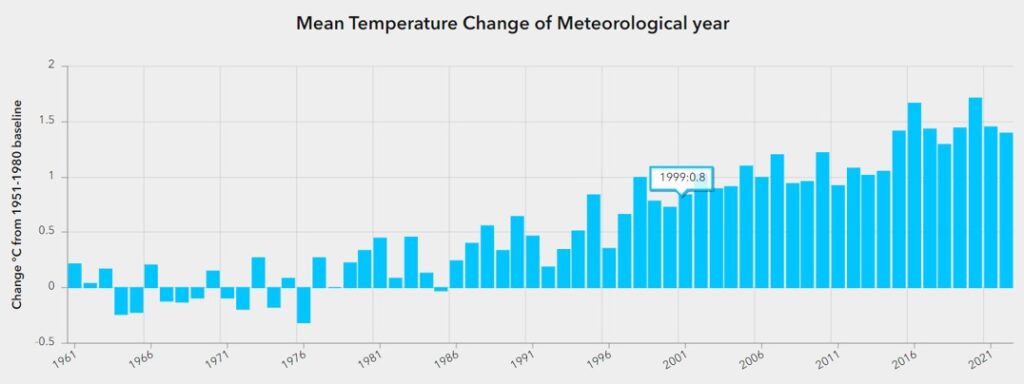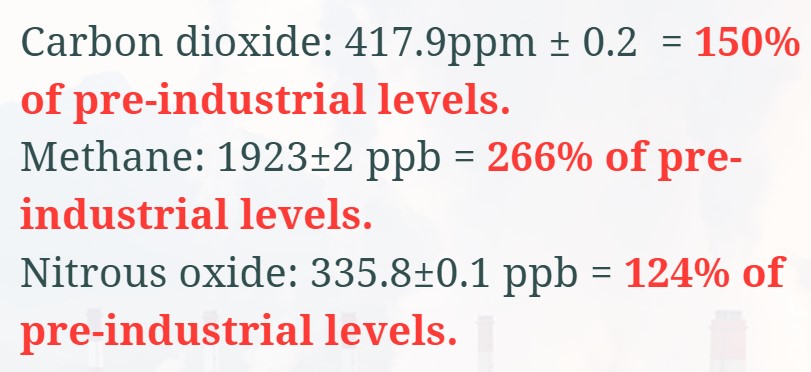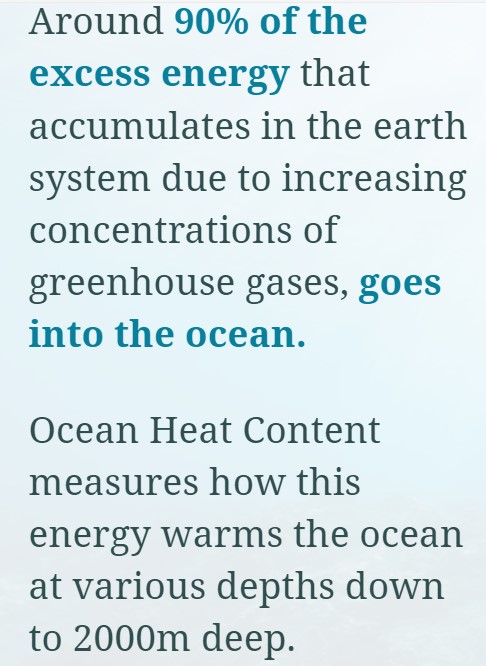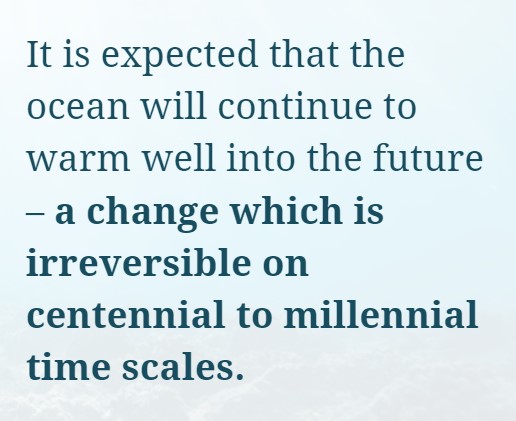By John Pickard
While Gaza is burning and its population deliberately starved, and while the Tory government is slowly collapsing into a stinking cesspit of its own making, it is easy for socialists to forget another huge political issue looming on the horizon. It is an issue that threatens economic and social upheaval on a scale unprecedented in our lifetime: climate change.
It says something when the most serious media representative of British capitalism, the Financial Times, complains that too little is being done to mitigate the disaster that is facing the planet. The main point it makes, in an editorial no less, is that “the world is warming faster than scientists expected”.
The Financial Times is not wrong. Last week, in the journal Nature, Gavin Schmidt, director of Nasa’s Goddard Institute for Space Studies, wrote that the data we have now implies a planet already “fundamentally altering how the climate system operates”. Schmidt has used Institute data to make climate predictions every year, but says that it is “worrying” that “no year has confounded climate scientists’ predictive capabilities more than 2023”. In that one year, Schmidt noted, the planet warmed 0.2oC more than had been predicted.
In a meeting some weeks ago Jim Skea, chair of the International Panel on Climate Change (IPCC), reviewed some of the various warnings that had been given in recent years. Five years ago, the IPCC warned that “limiting global warming to 1.5°C [above pre-industrial levels] would require “rapid and far-reaching” transitions in land, energy, industry, buildings, transport, and cities”. Limiting warming to 1.5°C, “is possible within the laws of chemistry and physics, but doing so would require unprecedented changes.”
Two years ago, the IPCC then gave a further warning: “It’s now or never, if we want to limit global warming to 1.5°C. Without immediate and deep emissions reductions across all sectors, it will be impossible.” This February, Skea concluded, “We can’t go on saying that for ever. We are going to run out of rope”.
Then last week, the head of the UN’s World Meteorological Organization, Celeste Saulo, issued another grim warning in a report entitled, State of the Global Climate 2023, which summarised the conclusions of scientists, including the fact that 2023 was the hottest year on record.
Last year, records were broken, and in some cases “smashed”
The WMO report noted that “records were once again broken, and in some cases smashed, for greenhouse gas levels, surface temperatures, ocean heat and acidification, sea level rise, Antarctic sea ice cover and glacier retreat”. It goes on, “Heatwaves, floods, droughts, wildfires, and rapidly intensifying tropical cyclones caused misery and mayhem, upending everyday life for millions and inflicting many billions of dollars in economic losses”.

What made the Financial Times sit up was the fact that the day before this report was issued, the boss of Aramco, the Saudi oil corporation, was boasting about a further expansion of oil and gas output. Amin Nasser told a conference in Houston that it was time “to abandon the fantasy of phasing out oil and gas”. Nasser, the FT reported, “said the world needed instead to invest in fossil fuels to meet demand”.
To the FT, the two events – Nasser’s speech and the WMO report – happening in the same twenty-four hours was “unfortunate timing”. But to anyone seriously interested in saving the planet, it is much more profound; it goes to the heart of the whole problem. The issue is not whether climate action is scientifically possible, as the chair of the IPCC asks, but whether it is politically possible.
Global emissions of greenhouse gases have yet to start coming down, despite all the commitments given in the past. Skua says “emissions have yet to fall” and the best that can be said of all of the various measures applied by those governments supposedly working towards “net zero” is, to use his words, that “we have begun to bend the upward trend…we’re falling short in meeting the goals of the Paris Agreement”.

In fact, the aims of the Paris Accords of December 2015 (COP21), are already overtaken. The last ten years have all been the warmest since modern records began, and in March this year, Skea acknowledged that the 1.5oC increase has already been breached. “Last year really was much quicker than we had all anticipated”, he said. “Some of it can be explained with the start of an El Niňo cycle, which will push temperatures up a bit. But it was still unexpected…” (Financial Times, March 13).
Given the complete failure of adherence to the lower Paris figure, all the indications are that the ‘fall-back’ position, of a 2.0oC rise, will also be exceeded in the not too distant future. The world has entered, as Skea puts it, into “unknown territory”.
Some parties and politicians are still in denial
Optimism about limiting climate change is very thin on the ground, and understandably so. Since the recovery of the world economy after Covid, the consumption of fossil fuels has continued to grow, and for all the ‘pledges’ made about ‘zero-carbon’ what governments are implementing is a drop in the ocean, compared to what is required.
Worse still, there are still major political parties and movements that are in climate change denial. Big oil, gas and coal companies facilitate and finance ‘denial science’, in much the same way that big tobacco companies paid scientists for years to deny that tobacco smoking was a risk to health.
For anyone seriously wanting to investigate the climatic effects of human activity, there is a wealth of data available, a mountain of information, much of making sombre reading. The giant ice fields, like those in Greenland and Antarctica, are melting at a faster rate than even th most pessimistic forecasts of the recent past. Land and sea temperatures are rising to such record levels that they are beginning to affect the quality of life of hundreds of millions of people, including in Southern Europe, Southern Asia and in the Middle East.
With almost monotonous regularity, new reports and warnings are issued, outlining the dire situation we face. In the lifetime of most Left Horizons readers, climate change has proceeded relatively gradually, although we may notice an increased incidence of flooding and wildfires, as well as unbearably hot summer temperatures, at home and abroad. We will increasingly be faced with climate crises that relate to food costs and greater refugee movement.

But it would be wrong to imagine that change will always be gradual and incremental. Climatic changes are essentially ‘chaotic’ processes and scientists have expressed concerns about possible ‘positive feed-back’ mechanisms built into the global climatic structures. Billions of tonnes of methane, for example, are locked into the tundra in Northern Canada and Siberia, and as temperatures rise, there is the potential for this gas – which is a more powerful greenhouse gas than carbon dioxide – to be released into the atmosphere, accelerating change.
It is also important to note that even if my some ‘magic’, we could stop all greenhouse gas emissions tomorrow, climate change is still baked into the natural processes that are already underway. The task facing humanity is not so much to move to zero-carbon – although that has to be done – but to mitigate the worst effects of climage change, which is bound to happen.
For young people, it is their future being trashed.
There seems to be little doubt that even in our lifetimes, we will see noticeable climatic, and therefore, meteorological changes affecting our lives. It is hardly surprising that young people are particularly angry and motivated about climate change – it is their future being trashed by the generations preceding them. It is the young men and women today who will have to suffer the direct social and economic impacts of climate change.

The problem we face is that task is beyond the inherent capabilities of a system based on greed, profit and personal enrichment and where a tiny minority of the population makes all the decisions. It is the Amin Nassers of the world who make all the decisions on world energy policy, not the scientists who issue the warnings.
Fossil fuel companies all pay lip-service to ‘greening’ the energy industry, but investments in new exploration and extraction of oil and gas go on apace. In fact, some researchers have argued that the expection of restrictions in the future is leading to an increase in fossil fuel investment in the short term. This is particularly true of private corporations, running headlong on a path of ‘short-termism’, trying to maximise their shareholders’ profits (and astronomical executives bonuses) before the opportunity disappears.
But it is also true of those companies that are state-owned, like Aramco, because for the heads of the governments that own them, their prestige and position depends more than anything on short-term income from oil. They have no interests in the wider needs of the planet or humanity as a whole.
Socialists have traditionally flown a ‘red flag’ and long may that be the case. But increasingly, we need to give it a fringe of green, because it is the single most important challenge facing humanity and something that could ultimately bring into question the continued existence of human civilisation. In that sense, nothing is more important than the ‘green’ agenda. The message we need to get across, however, is that the only realistic ‘green’ agenda is a ‘red’ agenda.
With the big oil and gas companies making the running and taking all the major decisions, facilitated by politicians they have bought and paid for, where is the possibility of mitigation of climate change? There is none. The meagre efforts of big corporations and governments will always be insufficient as they each try to outdo their rivals, squeezing the greatest degree of profit out of what is left of the planet.
For a socialist climate change policy
The left is sometimes accused of being ‘unrealistic’, but a socialist climate policy is the only one that offers a genuine concrete amelioration of greenhouse gas emission. The giant fossil fuel companies should not belong to a narrow, vanishingly small sliver of the population; they should be owned publicly and democratically managed in the interests of all.
Decisions by energy companies, and the switch towards renewables, should be managed democratically and transparently, with the participation of elected bodies representing scientists, workers and society as a whole. The planning of investment in all energy generation, as well as land use, the development of transportation infrastructure, and home insulation, and all of these related issues, should be done democratically and not over the heads of the majority, with no say in what goes on.
Human science, technology and ingenuity, is easily capable of mitigating the worst effects of inevitable climate change, without threatening the living standards of the world’s population, or for that matter without delaying the raising of living standards across the less economically-developed world.
World government spend an eye-watering $2.24tn, on armaments every year, according to research by the Stockholm Peace Institute. If only a fraction of this were devoted to the greening of the world’s economies, to renewable energy and other infrastructural investments, the threat from climate change would be overcome. That has to be the goal of the socialist movement.
The article by Gavin Schmidt in Nature that was referred to above, concludes with this: “We need answers for why 2023 turned out to be the warmest year in possibly the past 100,000 years. And we need them quickly”. It is true that we need to understand the science and have a detailed grasp of all the processes at work. But the real answers we need are political ones – above all building a movements that can challenge the grip that corrupt governments and greedy oil barons have on the future of the planet.



